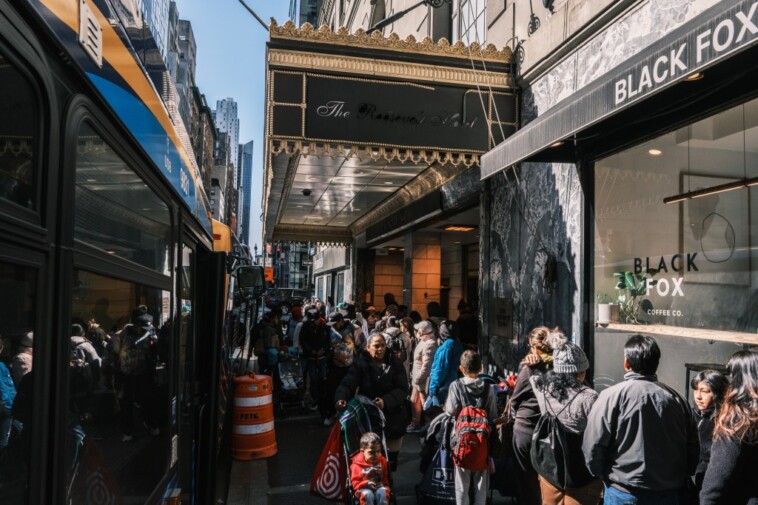A city pilot program doled out as much as $600,000 to move migrant families out of the Big Apple’s packed shelter system, officials confirmed Monday.
The Asylee Moveout Assistance pilot program, launched in December, paid 150 migrant families up to $4,000 each to help them get their own pads — yet another cost to taxpayers even as the city houses more than 65,000 asylum seekers.
“The city is using every tool at its disposal to implement innovative and cost-effective solutions to help recently arrived asylum seekers residing in shelters take the next steps in their journey,” a spokesperson for the city Department of Social Services said in a statement to The Post.
The one-time grants are paid out through city-contracted agencies and targets migrant families with pregnant women who have already picked a new place to live, officials said.
Only one of the 150 families in the program have bounced back to the shelter system, the city claimed.
The pilot program, first reported by Gothamist, also requires the 12 nonprofits now working with the city to track the money — demanding receipts from landlords, moving companies and others involved.
The money isn’t paid to the migrants directly, officials said.
As much as $1,000 of the grant money is earmarked for household supplies.
The move is the latest cost the migrant crunch has brought on the five boroughs, which has seen more than 210,000 asylum seekers from the US border with Mexico flock to the city since spring of 2022.
City Hall officials said taxpayers have doled out more than $5 billion since the crisis began, with more than 65,000 migrants still holed up in shelters.
Two massive facilities erected to cope with the overflow — tent cities at Randall’s Island and at a former federal airfield at Floyd Bennett Field in Brooklyn — have drawn the ire of local residents.
City officials said the pilot program could be expanded, costing even more money.
“One hundred fifty households have moved out of shelter and benefitted from this pilot over the the last seven months,” the DSS spokesperson said. “We hope to help more households take next steps as we assess the successes of the pilot and feasibility of scaling up.”




